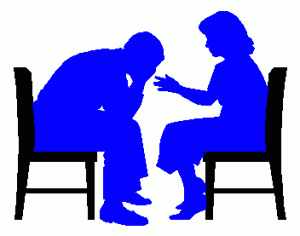Counseling in Hydrocodone Rehab
The options for hydrocodone addiction treatments (as well as other types of prescription opioid rehab treatments) are, according to the NIDA, “drawn from research on the treatment of heroin addiction.” Therefore, many of the same pharmacological and counseling options that are given to hydrocodone addicts are also used for heroin addicts. Counseling is extremely important in hydrocodone rehab, and there are several options when it comes to therapy which should be catered to the needs of the individual patient.
Why is Counseling Important in Hydrocodone Rehab?

Counseling is an important part of hydrocodone addiction recovery.
Individuals who begin taking hydrocodone, whether recreationally or on a doctor’s prescription, should understand that the drug “may be habit-forming” (NLM). For anyone who takes the drug, there is a risk of addiction, but only abusing the drug can cause this to occur.
Counseling is important in hydrocodone rehab because patients who have abused hydrocodone should understand why they did and how they can make changes to their behavior. In most cases, individuals need some type of counseling to learn to change their behavior, as relying on the medication option as an addiction treatment alone will not solve the problem.
According to the DEA, “Hydrocodone is the most frequently prescribed opioid in the United States” and is extremely easy to obtain. Because of this, patients must use what they learn in counseling to change problematic behaviors toward hydrocodone and learn to fight their triggers and cravings with a new way of thinking.
What are the Counseling Options in Hydrocodone Rehab?
There are several counseling options for those in hydrocodone rehab. One may be particularly useful in the beginning of treatment and a patient may be transitioned to another as time goes on. It is important to keep in mind that rehabilitation is a long road and many individuals need to continue treatment for years or may experience a need for periodic refreshers of treatment in order to preserve the state of recovery.
- Cognitive-behavioral therapy
- CBT is beneficial for teaching patients how to look at their behavior and make changes to it, more effectively controlling their desire for hydrocodone and their reactions to cravings and triggers.
- Contingency management
- CM helps patients relearn how to feel rewarded by positive things by using vouchers as a perk for abstinence from hydrocodone.
- Group therapy
- Group therapy brings together individuals who are all struggling with the same issue and allows them to listen to one another and share their stories. Group therapy can be very cathartic and allow patients insight into their own addictions by listening to the feelings of others.
More than one type of counseling may be used in hydrocodone rehab, and patients are encouraged to continue with the types of counseling that help them the most. Hydrocodone addiction does have pharmacological treatments, but these allow patients to become stabilized and less controlled by their cravings in order to attend counseling and be more open to the option of quitting.
It can be hard to change behavior that has been learned by long-term hydrocodone abuse. But counseling makes this easier by helping patients relearn how to function and think without hydrocodone––and remind them of why they decided to stop.